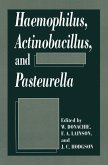When we were first approached by the senior editors of this series to edit a book on interactions between the host and infectious agents, we acceptedthis offer as an exciting challenge. The only condition, readily agreed upon, was that such a book should focus on the immunology of infections in humans. Our reasons, if not biases, were severalfold. We sensed that the fields of microbiology and im munolgy, which had diverged as each was focusing on its individual search, were coming together. In agreement with the opinions expressed by Dr. Richard Krause in the Introduction, we strongly believed that the development of the immune system evolved in response to infectious agents and that the evolution of these agents was influenced in turn by the character of the host's responses. An inten sive examination of the multitude of primitive or more recently developed host defense mechanisms to determine their relative contribution to man's resistance to a given infectious agent appeared to us to be of crucial basic· and practical interest. Many immune mechanisms studied in animals were being explored in humans and it appeared timely to focus particularly on what was known about man's resistance to infectious agents, correlating this information with lessons learned from relevant experiments in animal models.
Hinweis: Dieser Artikel kann nur an eine deutsche Lieferadresse ausgeliefert werden.
Hinweis: Dieser Artikel kann nur an eine deutsche Lieferadresse ausgeliefert werden.








